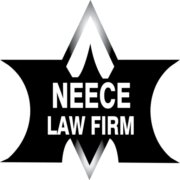Best Juvenile Law Lawyers in North Carolina
Share your needs with us, get contacted by law firms.
Free. Takes 2 min.
Or refine your search by selecting a city:
List of the best lawyers in North Carolina, United States
About Juvenile Law in North Carolina, United States
Juvenile law in North Carolina addresses the legal rights, protections, and procedures involving individuals who are under the age of 18 and are accused of committing offenses or are in need of care and protection. The state views juveniles differently from adults within the justice system. North Carolina has a separate juvenile court system designed to focus on rehabilitation, guidance, and the well-being of minors rather than on punishment. This approach seeks to help juveniles learn from their mistakes, avoid adult criminal records, and become positive members of society.
Why You May Need a Lawyer
There are many situations where legal assistance in juvenile law becomes essential. Some of the most common include:
- Your child has been accused of a crime or misdemeanor.
- A minor is suspected of violating probation or a previous court order.
- Your child is at risk of being removed from your custody due to allegations of neglect or abuse.
- You have questions about your child's rights during police questioning or school investigations.
- You are seeking help with truancy, emancipation, or adoption proceedings involving a minor.
A qualified juvenile law attorney can help protect your child’s rights, explain complex procedures, attend court hearings, and advocate for the best possible outcome.
Local Laws Overview
North Carolina juvenile law is governed primarily by Chapter 7B of the North Carolina General Statutes. Some key aspects include:
- Age of Jurisdiction: Juvenile court generally has jurisdiction over individuals under 18 years old for delinquency matters. North Carolina raised the age of juvenile jurisdiction from 16 to 18 for most criminal offenses starting in 2019.
- Types of Juvenile Proceedings: Cases typically fall under delinquency (acts committed by minors that would be crimes for adults) or undisciplined juveniles (offenses like truancy or running away).
- Intake and Diversion: Many cases are screened by juvenile court counselors and may be diverted from court, offering services without formal charges.
- Detention: Juveniles may be held in secure or non-secure custody while awaiting hearings, but only under limited circumstances.
- Confidentiality: Juvenile court records are not public information, providing additional protection for minors' privacy and future opportunities.
- Transfer to Adult Court: For serious offenses, the court may transfer juveniles aged 13 and older to adult court after a hearing.
Frequently Asked Questions
What is considered a juvenile in North Carolina?
In North Carolina, a juvenile is generally anyone under 18 years old who is not married, emancipated, or a member of the armed services.
How does the juvenile justice system differ from adult court?
The juvenile system focuses on rehabilitation and guidance rather than punishment. Proceedings are less formal, records are generally confidential, and the court prioritizes the needs and best interests of the minor.
Can my child be tried as an adult?
In serious cases, such as violent felonies, a juvenile aged 13 or older can be transferred to adult court after a transfer hearing.
Do juveniles have the right to a lawyer?
Yes, juveniles have the right to be represented by an attorney during all hearings. If the family cannot afford an attorney, the court will appoint one.
Can juvenile records be seen by the public?
No, juvenile records are not public in North Carolina. Access is tightly restricted to protect the minor’s privacy.
What types of offenses are heard in juvenile court?
Juvenile courts hear cases involving delinquent acts (crimes committed by minors) and status offenses (conduct that is only illegal due to the individual’s age, such as truancy).
Can a juvenile be taken into custody without parental consent?
Yes, law enforcement may take a juvenile into temporary custody without parental consent if there is probable cause to believe a law has been broken or the child is in danger.
What happens during the intake process?
A juvenile court counselor reviews the case and may decide on diversion (offering services instead of court) or schedule a petition to begin formal proceedings.
What are possible outcomes in a juvenile case?
Outcomes range from dismissal, diversionary programs, probation, community service, counseling, or, in rare cases, placement in a youth development center.
Can a juvenile court order affect a child’s future?
While records are confidential, certain adjudications can have future impacts, especially if the case is transferred to adult court or involves serious offenses. However, most minor offenses do not follow juveniles into adulthood.
Additional Resources
If you need more information or assistance related to juvenile law in North Carolina, consider the following resources:
- North Carolina Judicial Branch - Juvenile Court Section
- North Carolina Office of the Juvenile Defender
- North Carolina Division of Juvenile Justice
- Legal Aid of North Carolina
- North Carolina Child Protective Services (CPS)
- Local county Department of Social Services (DSS)
- North Carolina Bar Association - Lawyer Referral Service
Next Steps
If you or your child are facing a juvenile law matter, taking prompt action can protect legal rights and improve outcomes. Here’s how to proceed:
- Gather all documents and information related to the incident or situation.
- Contact a qualified juvenile law attorney, especially if legal proceedings are already underway.
- Consult with the resources listed above for more information on your rights and available services.
- Attend all scheduled court hearings and comply with any requirements set by the court or juvenile counselor.
- Ask questions if you are unclear about any aspect of the process, and seek guidance from legal professionals.
Remember, the juvenile justice system’s primary aim is rehabilitation and support. With the right guidance and representation, you can best protect the interests of your child or loved one throughout the process.
Lawzana helps you find the best lawyers and law firms in North Carolina through a curated and pre-screened list of qualified legal professionals. Our platform offers rankings and detailed profiles of attorneys and law firms, allowing you to compare based on practice areas, including Juvenile Law, experience, and client feedback.
Each profile includes a description of the firm's areas of practice, client reviews, team members and partners, year of establishment, spoken languages, office locations, contact information, social media presence, and any published articles or resources. Most firms on our platform speak English and are experienced in both local and international legal matters.
Get a quote from top-rated law firms in North Carolina, United States — quickly, securely, and without unnecessary hassle.
Disclaimer:
The information provided on this page is for general informational purposes only and does not constitute legal advice. While we strive to ensure the accuracy and relevance of the content, legal information may change over time, and interpretations of the law can vary. You should always consult with a qualified legal professional for advice specific to your situation.
We disclaim all liability for actions taken or not taken based on the content of this page. If you believe any information is incorrect or outdated, please contact us, and we will review and update it where appropriate.
Browse juvenile law law firms by city in North Carolina
Refine your search by selecting a city.















